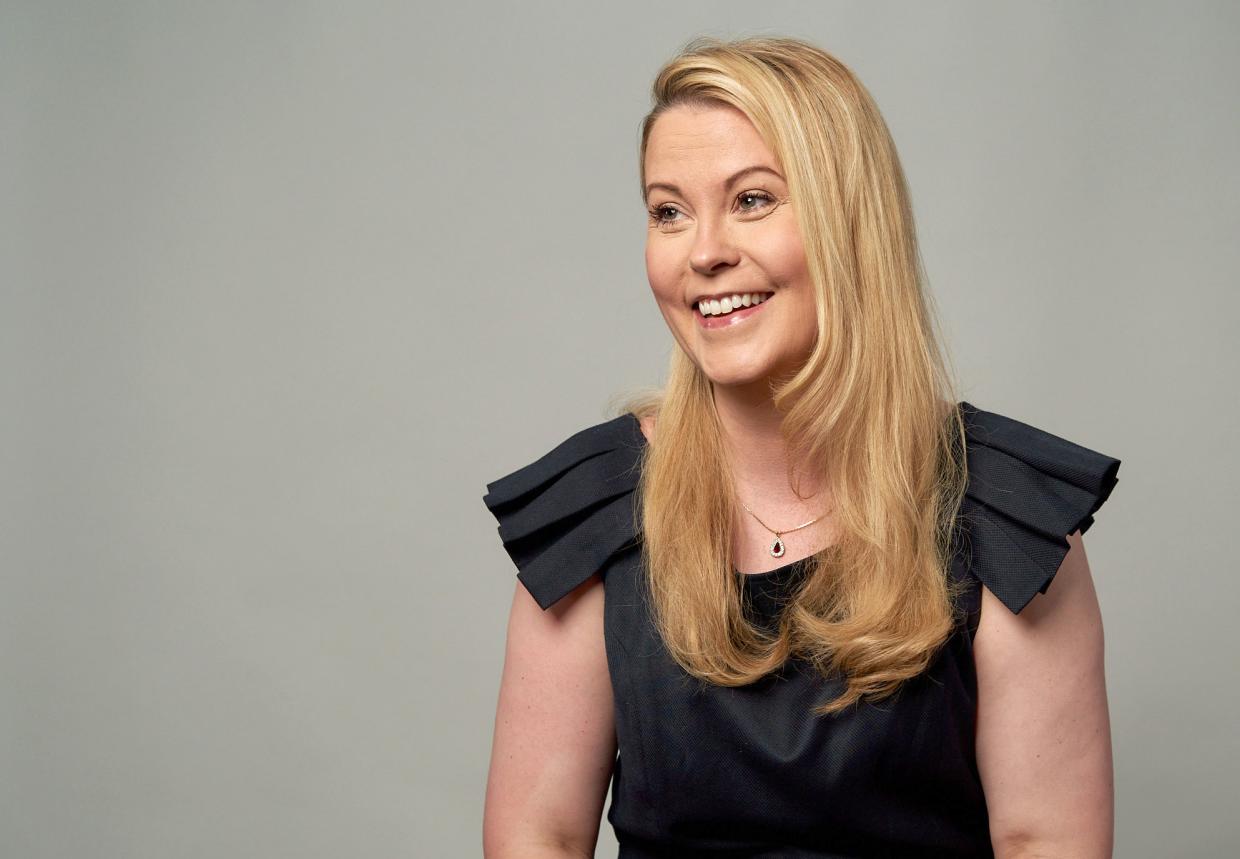Photo: Nicole Ross, Optometrist with New England College of Optometry
How MCB helps:
Nicole Ross, Optometrist
“As a low vision optometrist, doctors like myself specifically focus on maximizing the remaining vision of an individual and craft different workarounds to accomplish tasks in their life, from everyday personal to professional. Depending on the level of vision impairment, I am often the provider that talks to them about being legally blind, what that means, and kind of what are the next steps forward that they can take.”
Lexi Malkin, Optometrist
“One of the first conversations we have with someone about their new status as legally blind is about MCB. I let them know what MCB offers, how their vocational rehabilitation (VR) counselors help you recalibrate you moving through your life. We talk about devices and tools MCB can provide them to get them on a path to self-sufficiency.”
Kara Sittig, MCB Supervisor and Counselor
“So anyone over the age of 14, and up to around 65, or 70, if they are determined legally blind, with their optometrist or ophthalmologist, their doctor is mandated to declare them legally blind and register them with the Massachusetts Commission for the Blind. Once registered, we get an eye report with their name, address, phone number, and a diagnosis from that doctor.”
Brittany Taylor, MCB Counselor
“Sometimes we get referrals from people who have spoken with their doctor, but they're not really ready to accept services. We are patient — and a bit persistent — and ready to meet them when they're ready. Often their doctor is the most important person encouraging them to accept services if they're struggling with mobility or other daily challenges.”
James Leahy, MCB Client
“It's important to pay attention to your first specialists. They're giving you really valuable guidance and tools.”
Nicole Ross
“As a doctor, we really look to the patient to drive us. We ask them to tell us the things that are important to them in their lives. Then we look at different strategies and tools that can help with these things. Sometimes people can be a bit uncomfortable with that since it's usually the doctor running the show, but in these early conversations it's mostly listening to the patient's needs.”
Lexi Malkin
“I work very closely with about eight to 10 different counselors who are assigned to my patients. I share my notes with them so they're aware of our treatment plans and recommendations for the patients.”
Nicole Ross
“The conversation with MCB is ongoing as we figure out workarounds for challenges a patient has. We get creative; I'm kind of known as an 'optical MacGyver' because we literally create new tools for a client’s specific needs, or modify existing spectacles or devices. It's challenging but very rewarding work.”
Lexi Malkin
“The team here at New England College of Optometry really prides itself on its advocacy for our patients, really working with them and MCB to make sure people don't get lost in the system and get the assistance they need.”
Nicole Ross
“We really encourage our patients to take advantage of the support system — their doctors, MCB, and all the services available to them. They're not the first person to go through this, and they don't have to do it themselves. We have so many tools and strategies to help them live a better, happier life of mobility.”
